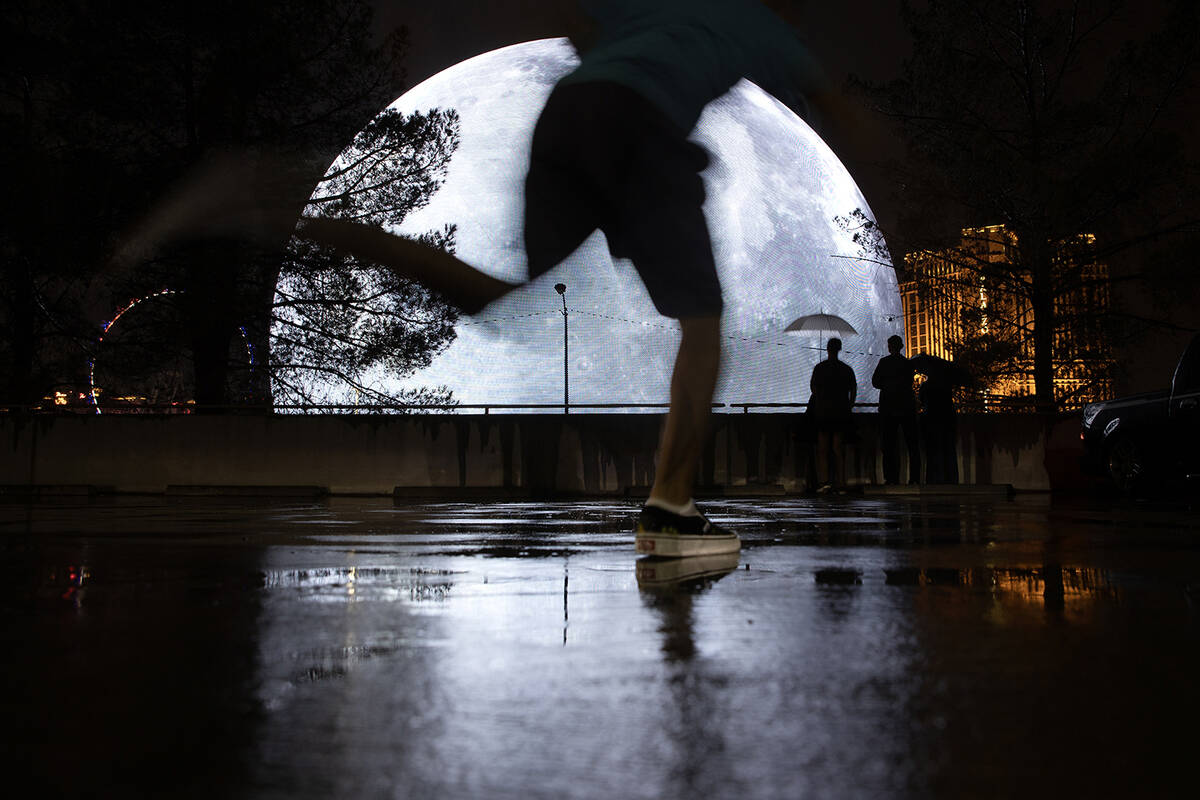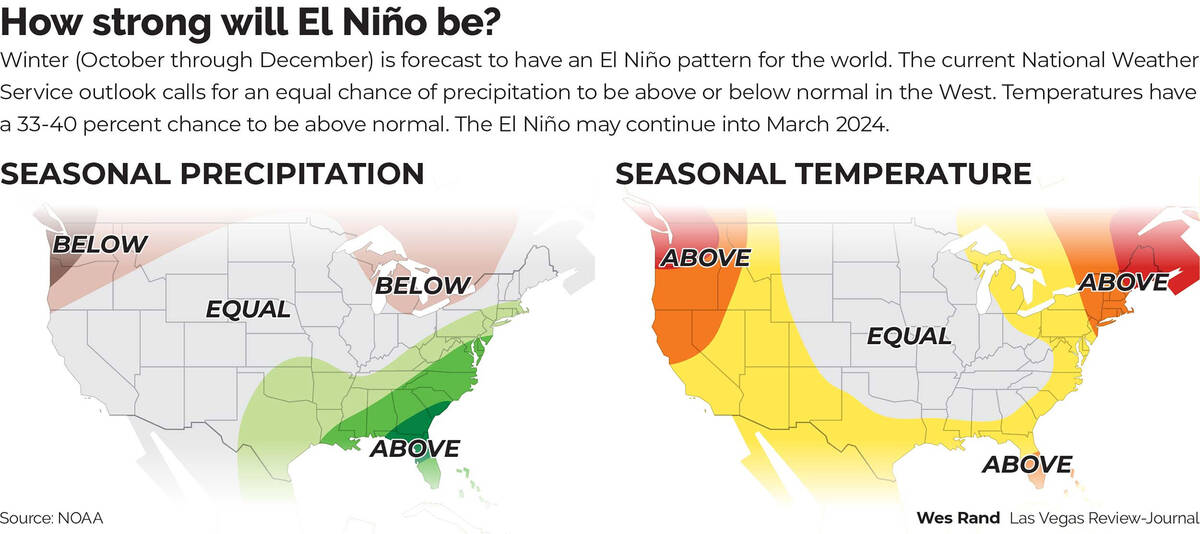Warmer October appears likely after cool, wet September
A Las Vegas September that was considerably wetter and cooler than normal may not mean a wetter and cooler winter is ahead, says the Las Vegas office of the National Weather Service.
September ended with an average temperature of 81.3 degrees, 2.3 degrees below the September norm. The monthly rainfall at Harry Reid International Airport totaled 1.51 inches, 1.19 inches above the normal monthly rainfall.
The month even ended with a trace of snow in the Spring Mountains. The record for earliest measurable snow at Mount Charleston is Oct. 3, 1986, says the weather service.
Warmer than normal weather appears to be likely this month.
“The 6 to 10-day forecast is for above average temperatures, and the two-week outlook favors above average temperatures, and the one-month (outlook) calls for slightly above average temperatures,” said weather service meteorologist Jenn Varian.
September joined June and August as months with below normal average temperatures, sort of counterbalancing the blistering July that saw some hottest days in Las Vegas weather history, including a tie for the 1962 record with 10 consecutive days with highs of 110 degrees or higher. The average temperature in June is 87.6, and this year it was 82.7. August’s norm is 91.7 degrees, and this year it was 89.6.
Al El Niño winter is forecast for the world this year with a 95 percent chance of lasting until March 2024, Varian noted.
“It’s on track to be similar to some of the the stronger (El Niño) winters in the past,” Varian said, adding that Las Vegas is too far north and east so “it’s in a space where there are no strong signals” about the strength of El Niño.
Locally, the worldwide weather factor of El Niño is mostly known for directing heavy moisture toward California and the Southwest as temperatures warm several degrees across the eastern and central Pacific Ocean.
“The forecasts right now are showing a fairly muted response” to El Niño in the United States, David DeWitt, director of the weather service’s Climate Prediction Center, said last month.
Contact Marvin Clemons at mclemons@reviewjournal.com.
























